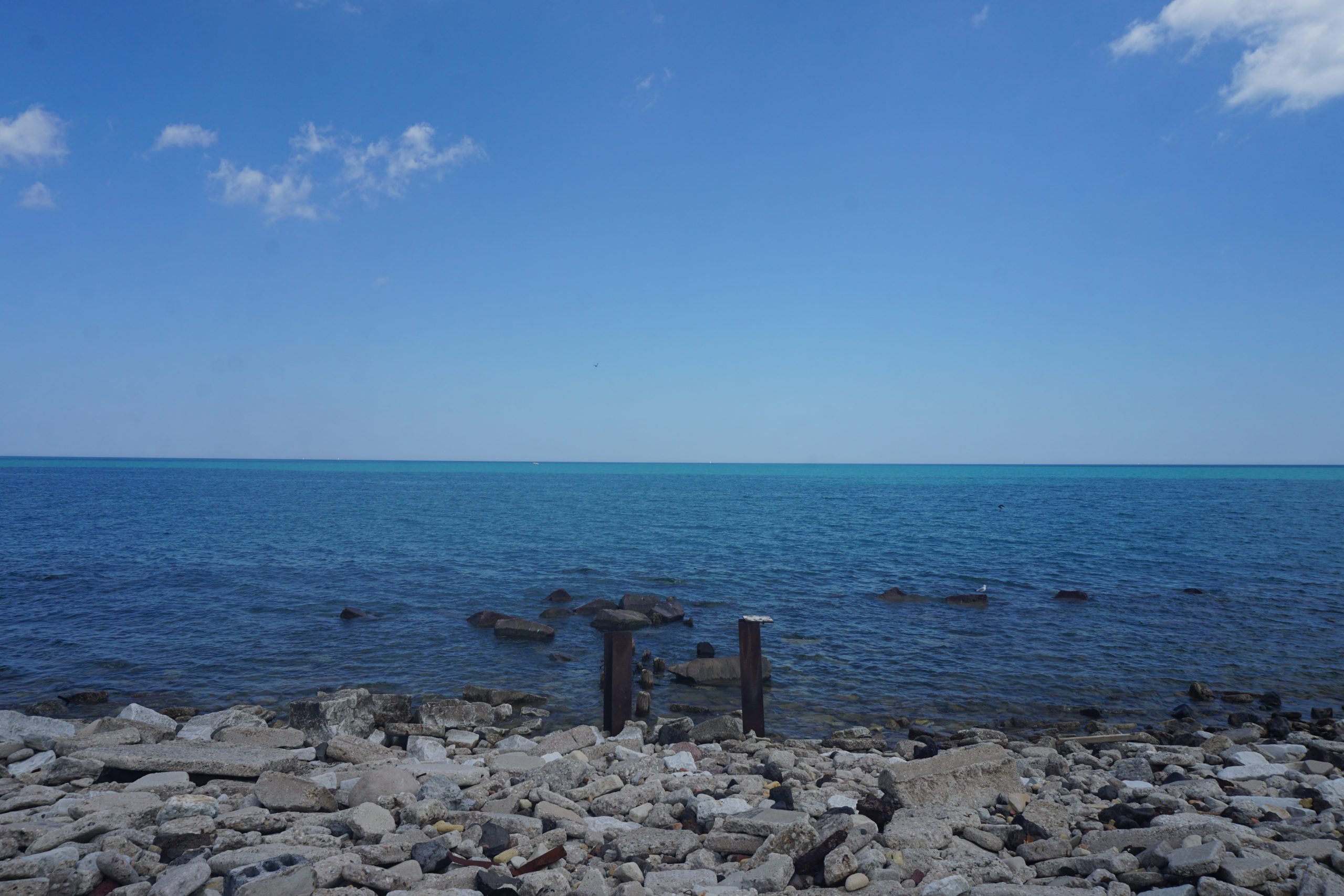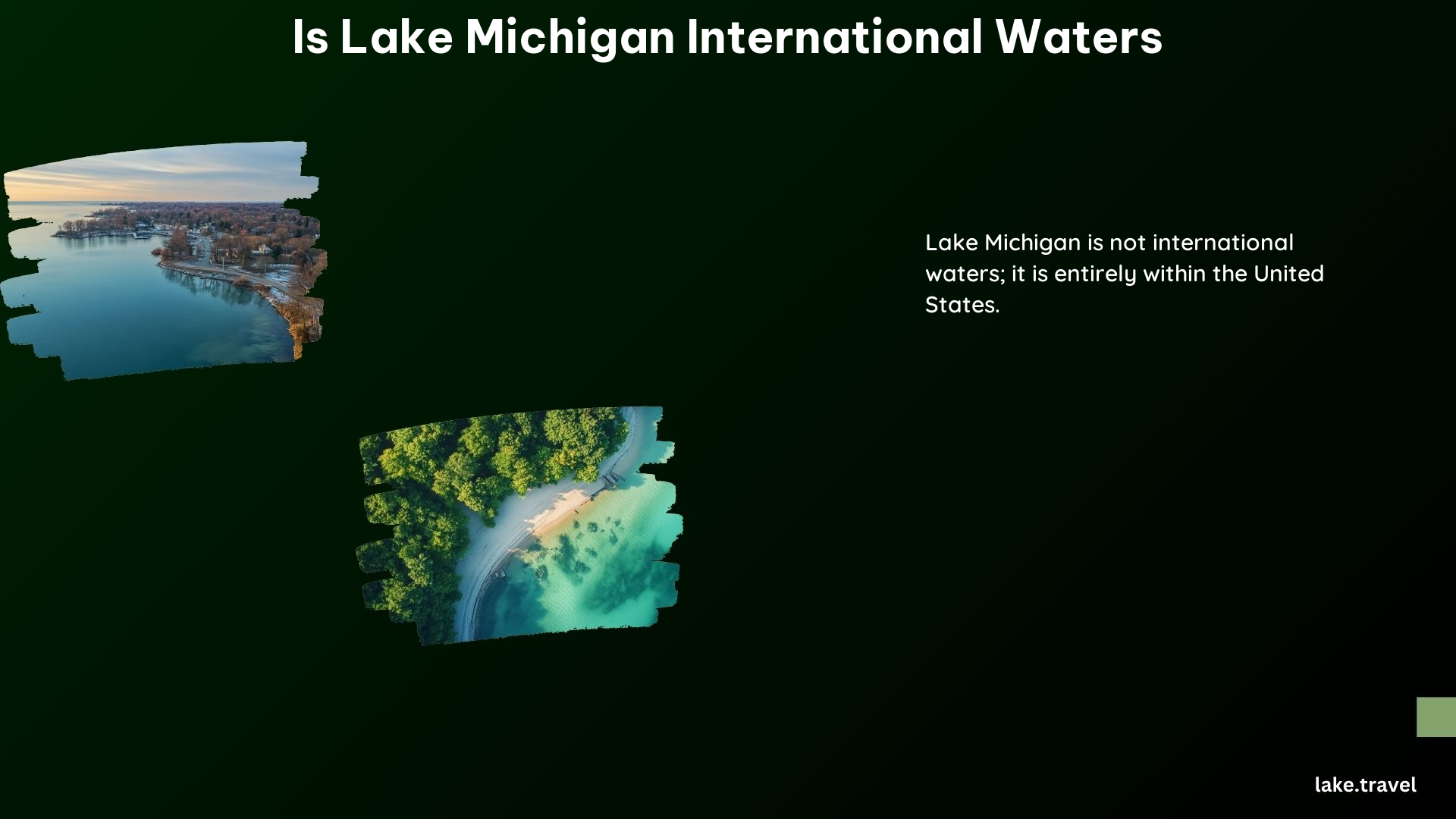Lake Michigan, one of the five Great Lakes of North America, is not considered international waters. It is the only Great Lake that lies entirely within the borders of the United States, shared by the states of Wisconsin, Illinois, Indiana, and Michigan.
The Great Lakes as Boundary Waters

While Lake Michigan itself is not international waters, the Great Lakes as a whole are considered boundary waters, with four of the lakes shared by the United States and Canada. These include:
- Lake Superior
- Lake Huron
- Lake Erie
- Lake Ontario
The Great Lakes are collectively administered by the Conference of Great Lakes and St. Lawrence Governors and Premiers, an intergovernmental organization involving the U.S. states and Canadian provinces bordering the lakes.
Jurisdiction and Governance of Lake Michigan

As the only Great Lake located entirely within the United States, Lake Michigan falls under the jurisdiction of the federal government and the four bordering states. There are no international boundaries within the lake itself.
The governance of Lake Michigan is primarily handled by the following entities:
-
Federal Government: The U.S. federal government, through agencies such as the U.S. Coast Guard and the Environmental Protection Agency, has authority over various aspects of Lake Michigan, including navigation, environmental protection, and resource management.
-
State Governments: The four states bordering Lake Michigan (Wisconsin, Illinois, Indiana, and Michigan) have their own laws, regulations, and agencies that manage and oversee activities within their respective portions of the lake.
-
Interstate Cooperation: The states surrounding Lake Michigan collaborate through various interstate agreements and organizations, such as the Great Lakes Commission, to coordinate management and address issues that span multiple state boundaries.
Recreational and Commercial Use of Lake Michigan
Lake Michigan is a popular destination for a wide range of recreational activities, including:
- Boating
- Fishing
- Swimming
- Sailing
- Kayaking
- Windsurfing
The lake also plays a significant role in commercial transportation and shipping, with several major ports located along its shores, such as:
- Port of Milwaukee (Wisconsin)
- Port of Chicago (Illinois)
- Port of Indiana-Burns Harbor (Indiana)
- Port of Muskegon (Michigan)
These ports facilitate the movement of goods and materials across the Great Lakes region and beyond.
Environmental Concerns and Regulations
As a shared natural resource, Lake Michigan is subject to various environmental regulations and conservation efforts to protect its water quality, wildlife, and ecosystems. Some key environmental concerns and regulations include:
-
Water Diversions: The Great Lakes, including Lake Michigan, are protected from large-scale water diversions by the Great Lakes-St. Lawrence River Basin Water Resources Compact, a binding agreement between the U.S. states and Canadian provinces bordering the lakes.
-
Pollution and Invasive Species: Federal, state, and local agencies work to monitor and address issues such as pollution, nutrient runoff, and the introduction of invasive species, which can threaten the lake’s ecological balance.
-
Habitat Conservation: Efforts are made to preserve and restore important habitats, such as wetlands and coastal areas, to support the lake’s diverse flora and fauna.
Recreational Boating and Navigation
Lake Michigan is a popular destination for recreational boating, with numerous marinas, boat launches, and designated navigation channels. Boaters on Lake Michigan must adhere to federal and state regulations, including:
-
U.S. Coast Guard Regulations: The U.S. Coast Guard is responsible for enforcing navigation rules, safety requirements, and environmental regulations on Lake Michigan.
-
State-Specific Boating Laws: Each of the four states bordering Lake Michigan has its own set of boating laws and regulations that apply within their respective jurisdictions.
-
International Agreements: While Lake Michigan itself is not international waters, the Great Lakes as a whole are subject to various international agreements and treaties, such as the Boundary Waters Treaty of 1909 between the United States and Canada.
Conclusion
In summary, Lake Michigan is not considered international waters, as it is entirely located within the borders of the United States and under the jurisdiction of the federal government and the four bordering states. However, the Great Lakes as a whole are considered boundary waters, with four of the lakes shared by the United States and Canada. The governance and management of Lake Michigan involve a complex interplay of federal, state, and interstate cooperation to ensure the lake’s sustainable use and environmental protection.
References:
- Boat Ed. (n.d.). Which Waters Are Federally Controlled? Retrieved from https://www.boat-ed.com/wisconsin/studyGuide/Which-Waters-Are-Federally-Controlled/10105102_51047/
- 42 U.S. Code § 1962d–20. (n.d.). Prohibition on Great Lakes diversions. Retrieved from https://www.law.cornell.edu/uscode/text/42/1962d-20
- Wikipedia. (n.d.). Lake Michigan. Retrieved from https://en.wikipedia.org/wiki/Lake_Michigan
